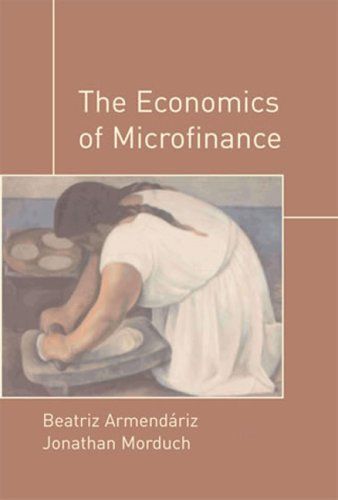
The Economics of Microfinance
The microfinance revolution, begun with independent initiatives in Latin America and South Asia starting in the 1970s, has so far allowed 65 million poor people around the world to receive small loans without collateral, build up assets, and buy insurance. This comprehensive survey of microfinance seeks to bridge the gap in the existing literature on microfinance between academic economists and practitioners. Both authors have pursued the subject not only in academia but in the field; Beatriz Armendariz founded a microfinance bank in Chiapas, Mexico, and Jonathan Morduch has done fieldwork in Bangladesh, China, and Indonesia. The book provides an overview of microfinance by addressing a range of issues, including lessons from informal markets, savings and insurance, the role of women, the place of subsidies, impact measurement, and management incentives. It integrates theory with empirical data, citing studies from Asia, Africa, and Latin America and introducing ideas about asymmetric information, principal-agent theory, and household decision making in the context of microfinance.